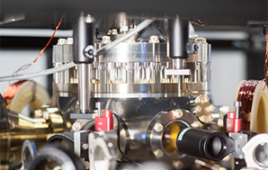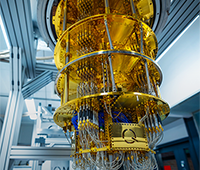 New York, NY — ACM (the Association for Computing Machinery) has announced that the funding level for the ACM A.M. Turing Award is now $1,000,000, to be provided by Google. The new amount is four times its previous level.
New York, NY — ACM (the Association for Computing Machinery) has announced that the funding level for the ACM A.M. Turing Award is now $1,000,000, to be provided by Google. The new amount is four times its previous level.
The cash award, which goes into effect for the 2014 ACM Turing Award to be announced early next year, reflects the escalating impact of computing on daily life through the innovations and technologies it enables. The new level is also intended to raise the Turing Award’s visibility as the premier recognition of computer scientists and engineers who have made contributions of lasting and major technical importance to the computing field.
“The Turing Award is now funded at the monetary level of the world’s most prestigious cultural and scientific awards and prizes,” said ACM President Alexander Wolf. “With the generous support of Google, we can celebrate the mainstream role of computing in transforming the world and the way we communicate, conduct business and access entertainment. We can also commemorate the pioneering, fundamental contributions of our ACM Turing Award recipients in advancing computing as a science and a profession.” Wolf is a professor in the Department of Computing at Imperial College London.
Stuart Feldman, Vice President of Engineering at Google Inc. said, “Google is proud to support ACM’s Turing Award. We think it’s important to recognize when people make fundamental contributions in computer science, and we want to help ACM raise awareness of these innovators and the contributions they’ve made to the world.”
Since its inception in 1966, ACM’s Turing Award has honored the computer scientists and engineers who created the systems and underlying theoretical foundations that have propelled the information technology industry. The award is named for Alan Turing, the British mathematician who laid the foundation for today’s always-on, interconnected world. Turing envisioned the power of the thinking machine, leading the way to innovations that changed the world: programmable computers, mobile devices, cryptology, artificial intelligence, robotics, graphics and genomics.
The 2014 Turing Award will be presented at the ACM Awards Banquet in the spring of 2015.
The most recent ACM A.M. Turing Award (2013) was presented to Leslie Lamport, who developed formal modeling and verification protocols that improved correctness, performance and reliability of computer systems. Other prominent Turing Award laureates include Shafi Goldwasser and Silvio Micali (2012) for transformative work in the science of cryptography that pioneered new methods for verification of mathematical proofs in complexity theory; Chuck Thacker (2009) for the innovative design and realization of the first modern personal computer — the Alto at Xerox PARC; Vint Cerf and Robert Kahn (2004) for pioneering work on the design and implementation of the Internet’s basic communications protocols; Alan Kay (2003) for the development of Smalltalk and the reconceptualization of computing which contributed to the emergence of personal computing; Douglas Englebart (1997), for the development of computing technologies such as the mouse and hypertext that have since become ubiquitous in modern computing systems; and Dennis Ritchie and Ken Thompson (1983) for the creation of the Unix operating system, which enjoyed widespread use and further development in commercial settings, and became an important teaching and learning tool in academic settings.
For more information on the Turing Award and its recipients, see http://amturing.acm.org/



